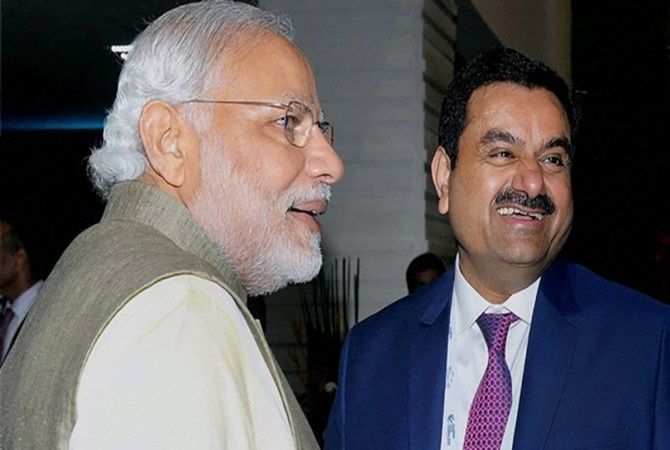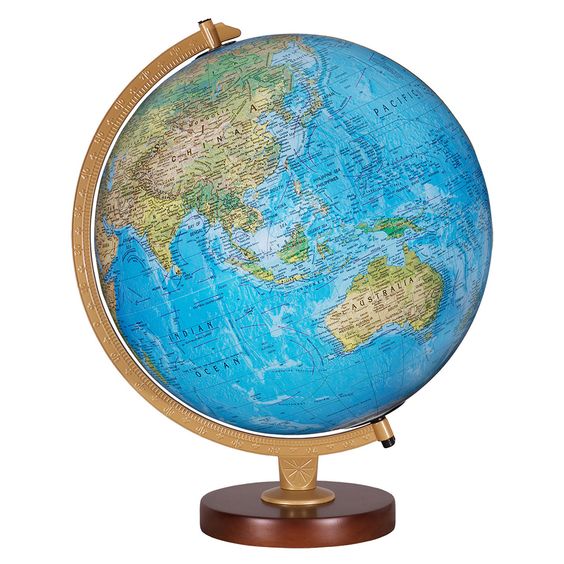
The scandal could potentially suck in the government – the government of Indian Prime Minister Narendra Modi.
By Tom Arms
The Adani scandal is big. It is big because it involves hundreds of billions of dollars; valuable and important infrastructure throughout Asia and could potentially suck in the government the government of Indian Prime Minister Narendra Modi.
First of all, who are the key players in this saga? They are the Adani Group’s founder Gautam Adani, Nate Anderson of Hindenburg Research and Prime Minister Modi. Last week, Adani, was the third richest man in the world. Today he is the 15th richest following the damning report by Hindenburg.
The Indian tycoon was a school dropout who started his business career in Mumbai as a diamond trader. But he soon moved back to his home state of Gujarat (where Modi was chief minister) and switched to commodities trading. Using Gujarat as his base, Adani established a business empire that includes India’s largest cement company, 13 ports, seven airports, six power stations and much more. The Adani Group even runs its own private railway and electricity supply.
Adani has 23,000 employees and ten days ago the conglomerate had a market capitalization of $230 billion. At the end of this week it was $120 billion and falling.
Now, who is Nate or Nathaniel Anderson? He is a former New York trader who founded Hindenburg Research with the aim of blowing the whistle on corporate fraud. Hindenburg forensic accounting techniques and good old detective work to uncover corporate fraud and corruption. It analyses public records, internal corporate documents and conducts confidential interviews with whistle blowing employees. Most of their investigations take about six months. The Adani analysis lasted two years.
Hindenburg’s work is not altruistic. In fact, they make a lot of money from each report. When the research is complete a paper is privately circulated to a small group of investors who then take a short position on the company’s stock. The report is released to the media, the company’s stock plummets and the Hindenburg investors walk away substantially richer.
This may sound like a corporate hatchet job. But every report that Hindenburg has issued since 2016 has been spot on in its expose of fraud and corruption.
In the case of the Adani Group they have accused the management of “brazen stock manipulation and accounting fraud over the course of decades.” They are guilty, claim Hindenburg, of “the biggest con in history.”
Hindenburg Research has also implicated the pro-business government of Narendra Modi. Even before Hindenburg, questions were being asked about the close relationship between Modi and Gautam Adani during Modi’s tenure as chief minister of Gujarat and later as Prime Minister. These have involved allegations of supplying subsidized energy to Adani and investment money from public companies.
Narendra Modi is pro-business and as a result the Indian economy has flourished, created jobs, raised living standards and won votes for Modi. But there have been suggestions that at least some of this expansion has a corrupt foundation. The Hindenburg report pointed out that “criticism of India’s elite businessmen and politicians has increasingly resulted in journalists being imprisoned or outright murdered. Stock market analysts have been arrested for writing negatively about companies.”
Both Gautam Adani and the government fiercely deny all the allegations in the Hindenburg Report. But the opposition Congress Party has seized on it and demanded a full parliamentary inquiry. At the moment the government is blocking it, but if Hindenburg’s allegations stand up, they will be hard pressed to stop it.
 World Review
World Review
US Secretary of State Antony Blinken this week subtlety attacked Benjamin Netanyahu. He didn’t directly criticize him, but the inference was clear. With a poker-faced Netanyahu standing next to him, Blinken pointedly listed the “core values” that the US and Israel shared: “respect for human rights. The equal administration of justice for all. Equal rights for minority groups. The rule of law, a free press, an independent judiciary and a robust civil society.”
Israel’s conservative press immediately and viciously attacked Blinken for “interfering in domestic Israeli politics.” This is because by highlighting these “core values” Blinken implied that Netanyahu’s ultra-nationalist government is veering away from them and heading towards what Hungary’s Viktor Orban calls an “illiberal democracy.”
The government’s claim to the disputed West Bank (now populated with 400,000 Israeli settlers) undermines Israeli claims that it protects human rights and the equal rights of minority groups. As did the continuing and spiraling violence which in January claimed 30 Palestinian and seven Israeli lives.
The rule of law and an independent judiciary is threatened by plans to politicize the Israeli Supreme Court and empower the legislature to override Supreme Court Decisions. It is further damaged by the fact that Netanyahu himself has been indicted on charges of fraud, breach of trust, bribery and corruption.
_________________
Nagorno-Karabakh is threatening to explode again. Either that or an estimated 120,000 Armenian civilians, including 30,000 children, will starve to death or die of disease because of an Azerbaijani blockade.
The Azerbaijan-Armenia dispute over Nagorno-Karabakh goes back to the 1917 break-up of the Russian empire. Stalin’s purges pushed it into the background but when the Soviet Empire dissolved frictions reappeared. The two countries have gone to war over the region in the 1990s, 2016 and most recently in 2020.
In each case Russia backed its traditional proxy Christian Armenia (the oldest Christian country in the world) and Turkey supported Muslim Azerbaijan. Turkish support has paid off for autocratic oil-rich Azerbaijan which has been able to buy the latest military equipment from Turkey. They soundly defeated the Armenians in the last conflict and substantially reduced the territory occupied by Armenians.
But that is not good enough for Azerbaijani President Ilhan Aliyev. On 12 December he sent in troops to block the Armenian community’s only access to the outside world, the Lachlin Corridor. He then told the Armenians they could either leave their homes in Nagorno-Karabakh, become Azeri citizens or starve.
They are starving. They are also without medical supplies, electricity is rationed, schools are closed and there is limited communication with the outside world. The Armenian Society of Fellows claims that Ilhan Aliyev is guilty of attempted genocide. The blockade has condemned by the EU, the US, The Council of Europe, Amnesty International and just about every developed country and a big chunk of the rest of the world.
But Aliyev ignores them all. His hand is strengthened by 1- Russia being distracted by Ukraine and 2- oil. Armenia was the birthplace of modern oil production and remains one of the world’s top producers. The current energy crisis is keeping prices high and allowing to hold at bay energy-poor Europeans. In the meantime, the Armenians in Nagorno-Karabakh starve.
_________________
The sad case of Tyre Nichols has highlighted America’s problem of police brutality. It doesn’t matter if it is blue on black, black on black or white on black; America has a problem with police forces too quick to resort to violence.
There are a number of contributing and overlapping factors to this problem: Recruitment, training, racism, the gun culture, a .them and us, attitude and the little person with a lot of power syndrome.
None of the above issues will be resolved quickly, but a start could be made by instilling every police man and woman with the creed that they are servants of the public and that that public includes every man, woman and child regardless of race, creed, gender or even criminal record.
Of course, part of the problem is lack of gun control. There are 100 million more guns than people in the US, and that is just the registered weapons. Lack of gun control is exacerbated by conservative politicians and the gun lobby arguing that people need guns to protect themselves not only from criminals, but from their own government as well.
The police are a key part of the governmental structure and so they need guns to protect themselves from gun-toting criminals and people carrying guns to protect themselves from the police. The result is a downward spiral as the police move ever closer to a quasi-military position when their mind-set should be evolving towards a quasi-social service stance.
___________________
Turkish President Recep Tayyip Erdogan is employing a forest of sticks and a field of carrots in preparation for this spring’s presidential and parliamentary elections. And he needs them because it looks as if his 20-year rule is under its severest threat ever.
First the carrots. The minimum wage has been doubled. Subsidies for gas and electricity have been raised and retirement age limits have been scrapped.
Now for the more numerous sticks. His chief opponent, Istanbul Mayor Ekrem Imamoglu, has been sentenced to six years and seven months in prison and banned from public office for “insulting a public official.” The sentence has been appealed. The bank accounts of the opposition Kurdish People’s Democratic Party have been frozen. The electoral board has been restructured – along with judicial oversight officials—and packed with members of Erdogan’s AKP Party and a “fake news” law has been passed that means anyone distributing “disinformation” on social media or elsewhere can be jailed for three years. The government decides what “disinformation” is.
There are other sticks such as shortening the approved campaign period so that opposition candidates have insufficient time to put their message across.
But the carrots and sticks do not appear to be having the desired effect which Erdogan would like. Polls show the ruling AKP either neck and neck with or lagging behind the coalition opposition in the battle for parliament. For the presidency, Erdogan’s main opponent has yet to be announced but it is likely to be the mayor of Istanbul if the courts allow him to stand. Imamoglu is popular with urbanized European Turks. Erdogan’s base is in the socially conservative rural areas.
Erdogan, however, is even losing support in his strongholds due to his rather bizarre policy of controlling inflation by lowering interest rates. Every economist told him it wouldn’t work. And it didn’t. Inflation peaked at 85 percent in October.
There is also growing dissatisfaction with his one-man autocratic rule. The six main opposition parties (dubbed the Table of Six) have put forward a plan to roll-back the political prerogatives he has accumulated over 20 years. The executive presidency established by the 2017 constitution would be scrapped. The prime minister’s power would be increased and the non-executive president would be limited to one seven-year term.
Erdogan’s rule has been marked by dissension with the US, NATO and the EU. The opposition announced that it wants to reverse that as well and put Turkey back on the road to “full membership of the EU.”
Defeating Erdogan will be a tough task. Tens of thousands of his opponents have been arrested and jailed. He has packed the courts and the electoral boards. Campaign laws have been adjusted to favour the incumbent and the AKP is estimated to control 90 percent of the media. But the polls show the two sides neck and neck.
______________
 Tom Arms is foreign editor of Liberal Democrat Voice and the author of “America Made in Britain”.
Tom Arms is foreign editor of Liberal Democrat Voice and the author of “America Made in Britain”.